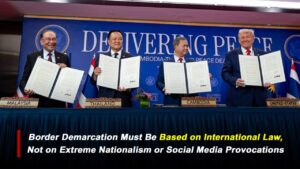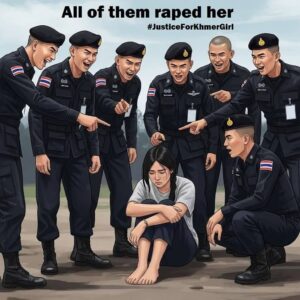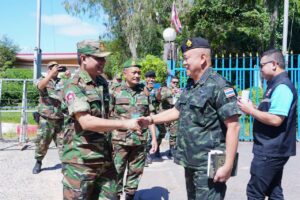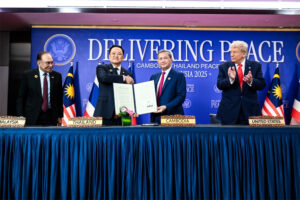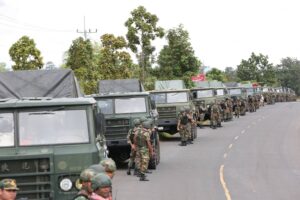Thailand Escalates Expansionist Nationalism: “Where Thai Soldiers March, There Lies Thai Land” – A Neo-Colonial Mindset Toward Cambodian Territory
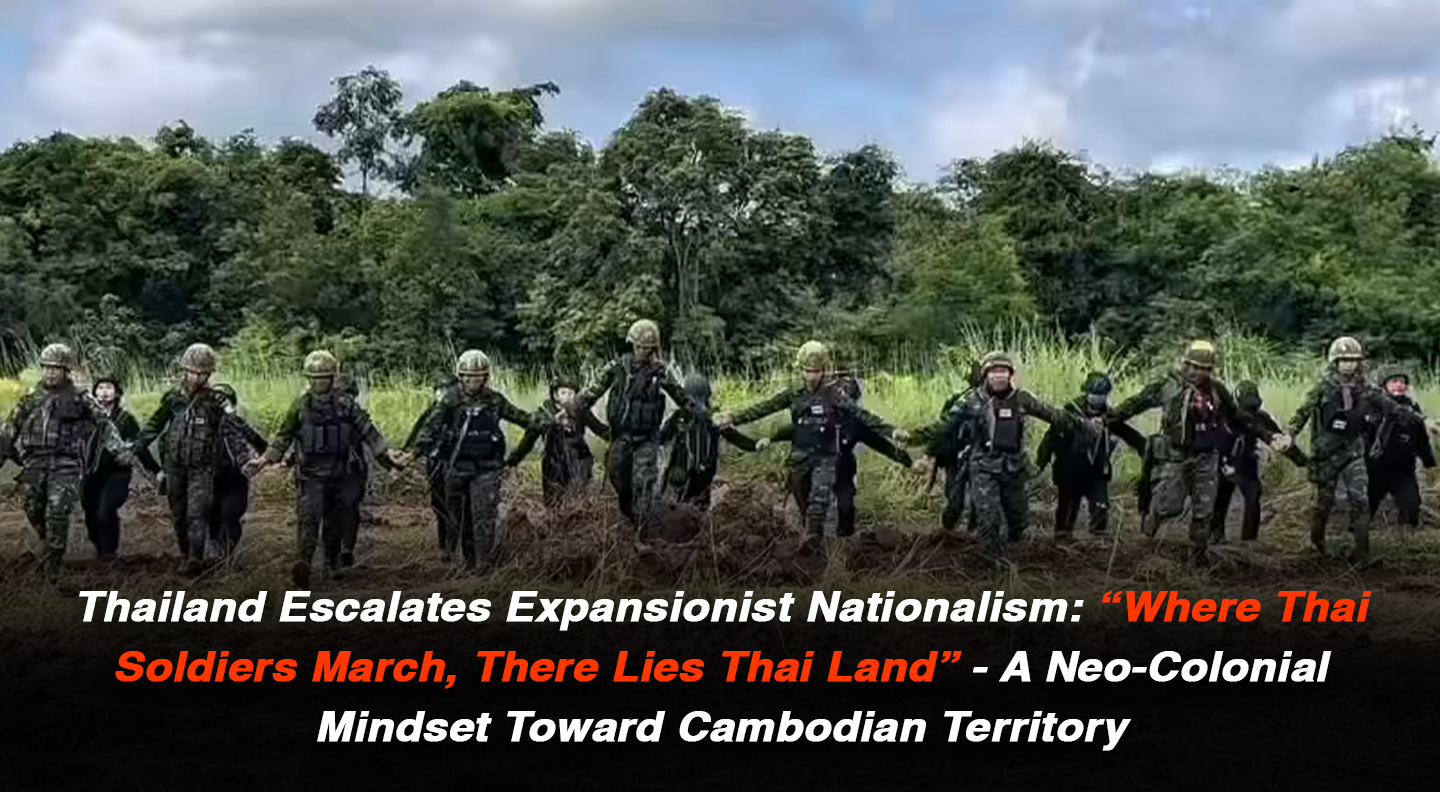 Thailand Escalates Expansionist Nationalism: “Where Thai Soldiers March, There Lies Thai Land” – A Neo-Colonial Mindset Toward Cambodian Territory
Thailand Escalates Expansionist Nationalism: “Where Thai Soldiers March, There Lies Thai Land” – A Neo-Colonial Mindset Toward Cambodian Territory
The display of nationalist and militaristic behavior by Thai soldiers on October 15, 2025, in Prey Chan village along the Cambodia–Thailand border has sparked strong condemnation from both national and international communities.
A video clip shows over 20 Thai soldiers holding hands in two rows, marching across Cambodian villagers’ farmland inside Cambodian territory, while singing the ultranationalist patriotic song “Phleng Chat” (“National Anthem”).
Colonel Chainarong Kasee, Commander of Task Force 12, Burapha Force, reportedly declared that “Where Thai soldiers march, that is Thai territory,” claiming the act symbolized Thai sovereignty. This statement, however, represents a clear and deliberate violation of Cambodia’s sovereignty and territorial integrity.
Such a statement reflects not ignorance, but a revival of expansionist and neo-colonial ideology, echoing early 20th-century imperialism. It disregards the Franco–Siamese Treaties of 1904 and 1907, incorporated into the 2000 Cambodia–Thailand MOU, and demonstrates Thailand’s continuing use of military intimidation and “Salami-Slicing Strategy”—a gradual encroachment tactic to seize Cambodian land while Cambodia remains diplomatically restrained and committed to the ceasefire agreement signed in Malaysia.
This incident reaffirms Thailand’s step-by-step aggression, carried out by undisciplined frontier forces acting more like armed bandits than professional soldiers—violating international law and the peace mechanisms under JBC, GBC, and RBC frameworks.
Worse still, Thailand’s military has engaged in psychological warfare, using loud ghost sounds, dog howls, and other disturbing noises at night to intimidate Cambodian villagers—acts condemned by multiple international human rights organizations as violations of the right to peace and safety of civilians.
Analysts believe Thailand is using the border issue to divert domestic attention from its worsening economic and social crises, as Prime Minister Anutin Charnvirakul faces mounting pressure from a collapsing economy and public discontent. Creating border tension and nationalist fervor serves to distract the Thai populace from the government’s failures, rallying temporary nationalist support ahead of potential political instability.
While Cambodia maintains silence to avoid reigniting open conflict, Cambodia continues to defend its sovereignty through diplomatic and legal channels, reaffirming that peaceful restraint does not equal acceptance of aggression. Cambodia’s patience embodies a strategic commitment to international law and justice, not submission.
Thailand’s notion that “where Thai soldiers march, that is Thai land” is unacceptable and illegitimate, posing a direct insult to Cambodia’s sovereignty and dignity. Such provocation risks not only derailing the upcoming ASEAN Summit on October 27–28, 2025, but also reopening the path to prolonged instability and potential armed confrontation.
Cambodia firmly asserts its legal right to defend its borders and sovereignty. The Cambodia–Thailand border is an international boundary, defined by the 1904 and 1907 treaties, the 1:200,000-scale map, and 74 border markers established over a century ago. Any unilateral declaration by the Thai military holds no legal validity and represents an unlawful expansionist claim.
By: Pin Vichey – Political Science Scholar


